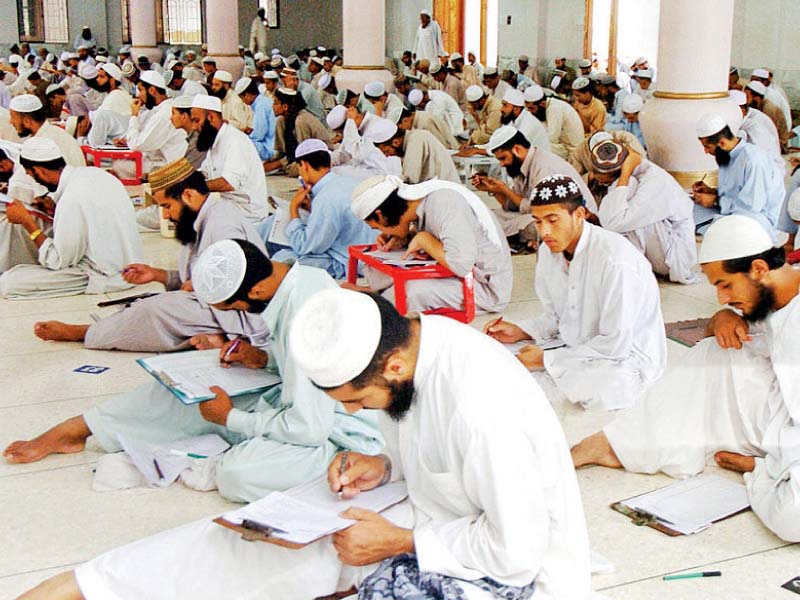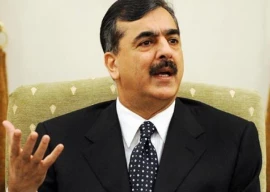
In order to streamline the education system of religious schools of thought, the federal government has decided to increase the number of boards for the affiliation and representation of madrassas.
While the government’s move is being hailed by various religious circles, it has also been opposed by the existing federations of madrassas.
Currently, there are five federations of religious schools in Pakistan. These include the Wifaqul Madarisul Arabia (Deobandi school of thought), Tanzeemul Madaris Ahl-e-Sunnat Pakistan, Wifaqul Madaris Al-shia, the Wifaqul Madaris Salafia and Rabta-ul-Madaris (Jamaat-e-Islami).
A federation of a religious school has the status of a madrassa board, which issues certificates to students.
Apart from them, Minhajul-Quran International, Jamia Ashrafia, Jamia Muhammadiyah Ghousia and Darul Uloom Jamia Binoria Karachi also have the authority to issue certificates.
According to sources, the government has also decided to increase the number of madrassas.
These religious schools will have the option of affiliating with any federation or madrassa board.
Similarly, Minhaj-ulQuran, Dawat-e-Islami, Jamia Muhammadiyah Ghousia, Jamia Ashrafia, Jamia Naeemia, Jamia Akora Khattak, Jamia Binoria, Jamia Urwatul Wusqa, Jamia Rizvia Faisalabad and other religious universities will be given status of a wifaq or federation so madrassas can affiliate with them. Mohtamim of Jamia Naeemia Lahore, Dr Ragheb Hussain Naeemi, said there is not a problem in increasing the number of federations of madrassas as needed.
Naeemi said there is a continuous rise in the number of conventional education boards and private universities, so now madrassas will also be able to join religious boards or wifaqs.
“There is a need for a detailed consultation on the pros and cons of increasing the number of madrassas.”
Central leader of Jamiat Ulemae-Pakistan Pir Syed Muhammad Mahfooz Mashhadi, while appreciating the decision to form new madrassa boards, said that this revolutionary initiative will end the monopoly of a few persons on various madrassa boards.
“This decision seems conducive in view of the growing number of religious schools. It will also eliminate centralisation and grouping.”
The leaders of Ittehad Tanzimat Madaris-e-Deeniya, including Senator Sajid Mir, Mufti Muneebur-Rehman and Qari Muhammad Hanif Jalandhari and others, have strongly reacted against the government to increase the number of madrassas.
The leaders of Ittehad Tanzimat Madaris-e-Deeniya have rejected the Waqf Property Act and announced a nationwide movement to protest against it.
The organisation is of the view that instead of facilitating those who contribute to religious education, barriers have been set up in the name of registration.
Dr Tanveer Qasim, an educationist, said whether it is a religious school or a traditional school, the education system should be in accordance with the policy of the state. At the same time, it is also important to address the concerns of the stakeholders of the religious schools.
“By bringing religious madrassas under the Ministry of Education and reforming them, these madrassas will surely get mainstreamed. However, instead of creating an atmosphere of confrontation with the stakeholders, the government should constitute policies and apply reforms in consultation.”


1725030039-0/Untitled-design-(2)1725030039-0-165x106.webp)



1732622842-0/Express-Tribune-(9)1732622842-0-270x192.webp)











COMMENTS
Comments are moderated and generally will be posted if they are on-topic and not abusive.
For more information, please see our Comments FAQ